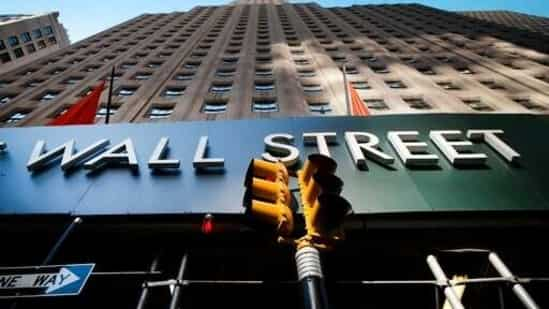Shares on Wall Street tumbled in premarket trading Friday as worries flared over turmoil in the banking sector and potentially worsening risks of recession.
Futures for the Dow Jones Industrial Average slid 1% before the bell and the benchmark S&P 500 fell 0.8%.
Most U.S. bank stocks fell between 2% and 4%, dragged down by Deutsche Bank, which fell more than 10% on reports that the company was facing higher costs for insuring itself against default.
Investors are worried that more banks might suffer a debilitating exodus of customers following the second- and third-largest U.S. bank failures in history. That turmoil is clouding the outlook for what the Federal Reserve will do with interest rates after hiking them to market-rattling heights over the last year.
The fear is that all the turmoil in the banking industry could cause a sharp pullback in lending to small and midsized businesses around the country. That could put more pressure on the economy, raising the risk for a recession that many economists already saw as likely.
Shares in the troubled First Republic Bank slid another 5% early Friday, while KeyCorp, PNC and M&T all fell more than 2%.
Deutsche Bank’s shares plunged as much as14% after an overnight surge in credit default swaps — a hedge against defaults for bond investors. Other European banks also lost ground. Commerzbank dropped 8.7%, Societe General skidded 7.7% and Credit Suisse, itself subject to a government-arranged buyout by UBS, dropped 8.6%. UBS gave up 8%.
Regional banks’ shares in Asia were modestly lower Friday, with HSBC Holdings plc losing 2.9% in Hong Kong while mid-sized Japanese bank Resona Holdings declined 2.6%.
Shares in Japanese energy and electronics company Toshiba Corp. gained 4.2% after it announced late Thursday that it had accepted a $15 billion tender offer from a buyout fund made up of the nation’s major banks and companies. If regulators approve it, the proposed buyout by private equity firm Japan Industrial Partners would be a major step in troubled Toshiba’s yearslong turnaround effort, allowing it to go private.
In Europe at midday, Germany’s DAX lost 2.4%, the CAC 40 in Paris tumbled 2.3% and Britain’s FTSE 100 declined 1.8%.
Tokyo’s Nikkei 225 index lost 0.1% to 27,385.25 and the Kospi in Seoul gave up 0.4% to 2,414.96. Hong Kong’s Hang Seng slipped 0.7% to 19,915.68 and the Shanghai Composite index sank 0.6% to 3,265.65.
Australia’s S&P/ASX 200 shed 0.2% to 6,955.20. Shares fell in Mumbai but rose in Bangkok and Taiwan.
Oil prices fell 3.5% after Energy Secretary Jennifer Granholm said re-filling the U.S. strategic reserves would take years. The Biden Administration released hundreds of millions of barrels from the reserve to counter skyrocketing gas prices after Russia invaded Ukraine.
The reserve has fallen to levels not seen since the early 1980s and some of the price support for crude at around $70 per barrel was based on those reserves being topped off.
U.S. benchmark crude oil dropped $2.45 to $67.51 per barrel in electronic trading on the New York Mercantile Exchange. It gave up 94 cents to $69.96 per barrel on Thursday.
Brent crude, the pricing basis for international oil, lost $2.44 to $73.06 per barrel.
The U.S. dollar fell to 129.97 yen from 130.83 yen. The euro slipped to $1.0742 from $1.0833.
On Thursday, the S&P 500 added 0.3% for its third gain in four days while the Dow Jones Industrial Average gained 0.2%. The Nasdaq composite held up better thanks to strength in technology shares, gaining 1%.
